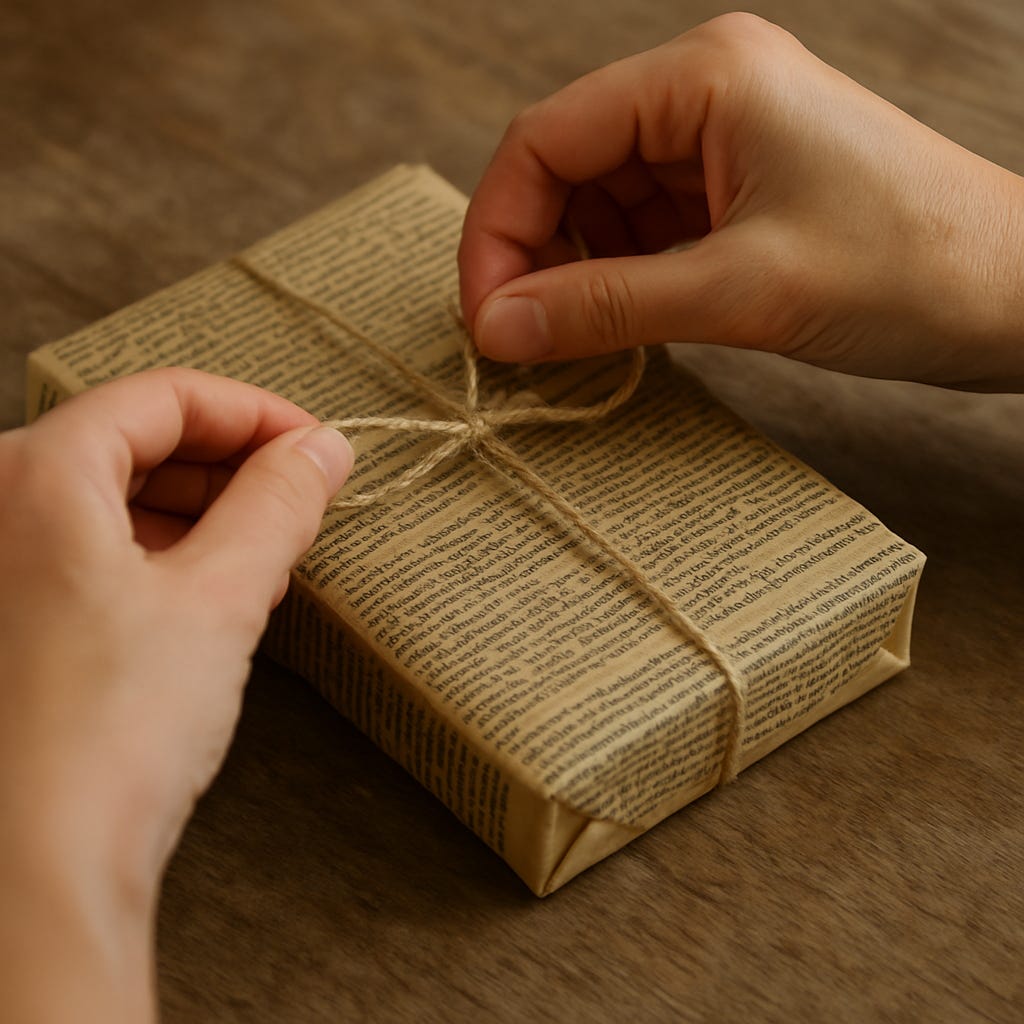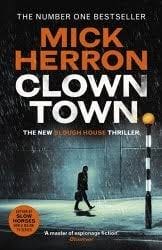On memory, clutter and letting go
Finding the Value of Things
There’s something about Instagram that lets you waste your time in a more wholesome way than all the other social media channels. The algorithm has mapped out the recesses of my mind in such detail that it knows I want to look at home baristas, decluttering ideas and maths puzzle videos in the morning and vintage dance music, bookbinding, geli printing and sauna videos in the evening. Yes, I know, that’s niche, or weird depending on how you look at it.
Decluttering is a problem for me. I still have half a garage full of books at my former mother-in-law’s house. She’s a pretty niche ex-mother-in-law too because I’m blessed to have her in my life. Since moving to Yorkshire, every couple of months I tackle a carload of boxes from her garage. I have to prepare for it in advance because if I don’t approach the unboxing with enough time and mental fortitude, during a week when my ADHD isn’t in overdrive, I’m sunk. If the boxes hang around untouched, I can be in declutter paralysis for potentially ever.
I’ve just come out of a six-month block. I’m also blessed to have an employee, who I’d better not name here, who has saved me. The blockage was my upstairs office. Some of the unfinished boxes ended up there and at some point it became the dreaded storage room rather than a functioning office. My employee spent three days on paperwork with me. In several of the boxes was the hard stuff to throw away, letters from friends in the 1980s, old notebooks from road trips, my first promotion letter from the Labour Party in 1985, and orders of service from several high-profile funerals. Anyway, I now have a new filing system and the office is back to working as it should.
Between the three of us, my ex-mother-in-law, my employee and me, my mind feels decluttered. It’s helped me find the space to write again, which is odd, but that’s the way the mind works.
Decluttering makes you realise something quite profound, the value of things. A very close friend once taught me this when I tried to help her find domestic order among her possessions. For certain people, physical objects are more than things, they’re external memory banks. They hold a point in time, a person or an emotion, sometimes all three. This hit me when I once tried to bin an ancient empty two-litre ice-cream carton that had weathered so many winters it had several cracks, rendering it useless. It sat on the shelf, waiting to be decluttered, but it never made the cut. For at least three decades this futile thing has stolen two litres of space in my friend’s house, waiting to be replaced by something useful. The key to its permanence was a rotting piece of masking tape running across one side. On it, in faded ink, was her granny’s handwriting. The words were smudged beyond recognition, but the loops and lines were still unmistakably her Granny B. For some people the smallest, most battered things hold the richest stories and have a different value.
Maybe this next phase is less about getting rid of things and more about transforming them. I’ve been looking at all the art forms that reuse what already exists, bookbinding, collage, geli printing. There’s something hopeful in turning what you already have into something new.
So this is a long way of saying I’m going to try something new next year. I have too many books. The algorithm keeps showing me reels about books, books to read, books to mend, books to turn into art. My first job was as a trainee library assistant forty-one years ago. Maybe that’s why I can’t let them go. But I’m going to start making book-cover art and sending books to friends. It won’t solve my clutter problem overnight, but if I invest time in presenting them well, maybe it will add a little value, to the book, to my friends and to our friendship.
The Stop Farage General Election
News this weekend reports that Keir Starmer and Rachel Reeves will focus on Nigel Farage’s role in Brexit in next month’s budget. At last!
After ten years, Nigel Farage has finally got what he wanted. British politics now revolves around him. Every party conference this autumn proved it. Labour, the Lib Dems, and the Greens all talked as if the next election is a race to stop him. The Conservatives didn’t say his name, but everything they did was aimed at the voters he now tempts away.
But here’s what they all avoid saying: the biggest thing Farage ever did was already done. His farewell card was Brexit, and we’re all still paying for it.
For many Britons, Brexit isn’t a memory, it’s a living condition. It shapes our bills, our wages and our mood. Yet Westminster behaves as though silence might make it disappear. It isn’t the elephant in the room. It’s the biggest beast that ever roamed the planet in the room. It’s a 180,000-kilogram blue whale in the room. For Nigel, that’s a 28,345 stones and 2 Imperial pounds of blue whale in the room.
Let’s talk plainly about the bill
The government’s own fiscal watchdog says leaving the single market and customs union has permanently reduced the UK’s productivity by around four per cent. That’s roughly £115 billion every single year. We used to say you couldn’t put a price on sovereignty. Turns out you can: it’s about £115 billion.*
Independent estimates say the economy is roughly five per cent smaller than it would have been without Brexit. Investment has stalled, trade in goods has shrunk, and the costs keep rolling in. We’re not ruined, but we are poorer than we needed to be.
Just take a look at the weekly shop. New non-tariff barriers pushed food prices up by around six per cent in 2020 and 2021, adding about £6 billion to household shopping bills. The state also spent at least £4.7 billion building new border systems that don’t make food any cheaper. Imagine if Rachel Reeves could stand at the Despatch Box on Budget Day and say: “I’m cutting £6 billion from Britain’s food bills by ending pointless Brexit red tape.”
You can’t fight a Stop Farage Election without talking about Europe. The parties agree he’s the threat, yet none have so far focussed on the issue that made him matter. Farage didn’t just break the old order; he built the new one. The cost-of-living crisis, slower growth, tax rises, queues at Dover and labour shortages all carry his fingerprints.
If Britain really wants to stop Farage, it’s time to name the whale and face the consequences of his legacy.
*On the OBR’s central assumption, Brexit leaves the UK about 4% smaller in the long run; at current GDP that is about £115 billion less output each year than if we had stayed in the EU. This is a counterfactual GDP gap, not a cash cost, and other estimates put the range at £60–£150 billion depending on method and timing.
Reading
When you’re addicted to Mick Herron’s books, you come to appreciate his wit and satire more with each one. Clown Town, the latest in the Slough House series, features the so-called “Sword of Dominic Cummings,” gag I won’t spoil by explaining. Herron has earned the right to be playful and a little indulgent with his readers, and he’s laced this sharp, fast-moving plot with plenty of in-jokes for his loyal fans.



I can relate to your book habit. I've way too many but am loathed to part with them. I've started buying secondhand to save money but the problem is that it has increased the rate I'm buying them !
I really hope that Labour do start calling out Farage for Brexit. Maybe the penny might drop for a few of his supporters then.
My first job 46 years ago was on a mobile library, pootling around the Kent countryside. I also have a house full of books. It never leaves you.